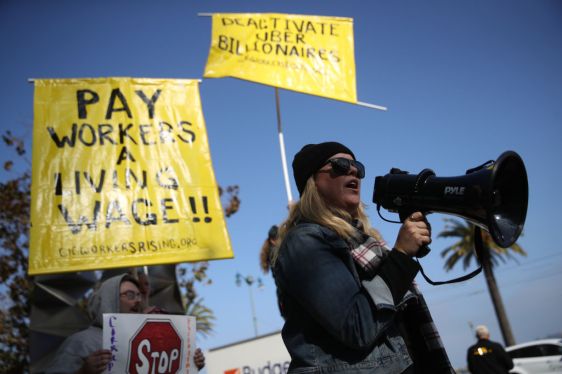California lawmakers have reached a deal with Uber and Lyft that will allow app-based drivers to form unions and could lead to more affordable ride-hail fares. This agreement is a significant win for gig workers, who have historically been classified as independent contractors. That classification made them ineligible for certain protections employees receive, such as the right to collective bargaining.
Governor Gavin Newsom, alongside Senate President Pro Tem Mike McGuire and Assembly Speaker Robert Rivas, announced support for two pieces of legislation on Friday. These bills create a pathway for app-based drivers to unionize. Assembly Bill 1340 is sponsored by SEIU California, and Senate Bill 371 is sponsored by Uber and Lyft.
Governor Newsom called the deal an historic agreement between workers and business that only California could deliver. He stated that labor representatives and the companies found common ground to empower hundreds of thousands of drivers while making rideshare more affordable for millions of Californians. The agreement establishes a model for drivers to organize and advocate for increased pay, job protections, and other benefits.
In exchange for this, California regulators say they will support legislation to reduce expensive insurance coverage mandates that ride-hailing companies are required to pay. Uber and Lyft have linked those insurance payments to higher ride fares in California and lower driver pay.
Uber’s head of public policy for California, Ramona Prieto, said in a statement that with Sacramento now aligned on the need to make rideshare more affordable, the company is happy to see these two important pieces of legislation moving forward together.
This deal comes years after Uber, Lyft, and other app-based gig companies spent over $200 million to convince California voters to pass Proposition 22. That measure classified gig workers as independent contractors while granting them limited benefits. Drivers have long criticized the system for giving companies broad control over pay and deactivations, which left them with limited power to influence their earnings or working conditions. Supporters of the new agreement believe it will give drivers a stronger voice to push back against unfair treatment.
The agreement could have ripple effects in other states. In 2024, Massachusetts voters approved a similar initiative to allow ride-hail drivers to form unions and negotiate their pay, benefits, and working conditions.
This article was updated with a statement from Uber.

